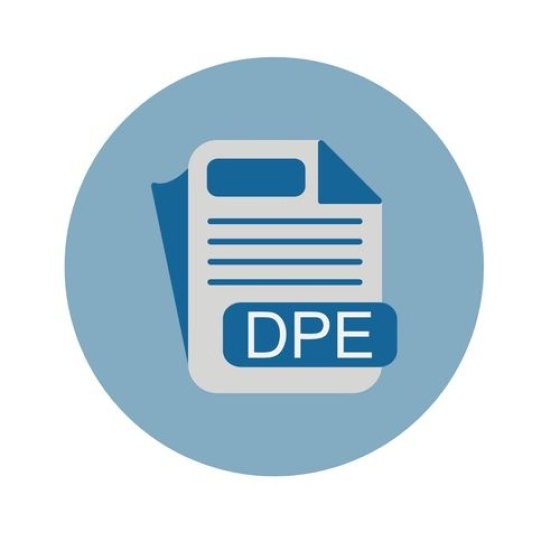Real Estate Diagnostics: A Mere Formality or a Major Legal Challenge for Real Estate Agents?

n the world of French real estate, technical diagnostics are far more than a simple administrative formality. The property owner selling a home is legally required to provide diagnostic reports to potential buyers to inform them about certain aspects of the property they intend to purchase. While this obligation may seem minor, it actually represents a major strategic and legal issue for real estate professionals.
Real estate diagnostics, the foundation of a secure transaction
The Technical Diagnostic File (DDT) brings together all mandatory reports depending on the type and age of the property. These include the Energy Performance Certificate (DPE), the Lead Exposure Risk Report (CREP), the Asbestos Report, the Electrical and Gas Safety Inspections, the Termite Report, the Risk and Pollution Report (ERP), and the Energy Audit for poorly insulated properties. Each of these technical documents carries crucial information for the buyer and engages the responsibility of all stakeholders involved in the real estate transaction.
For real estate agents, these diagnostics are not merely an item to list in a sales agreement. They represent a true guarantee of professionalism and legal security. A missing report, an omission, or negligence in their handling can turn a smooth transaction into a complex legal dispute, with serious financial and reputational consequences.
The legal framework: strengthened obligations for real estate agents
The real estate agent’s responsibility can be understood around three fundamental concepts: the duty of vigilance, the duty to inform, and the duty to advise. These obligations go far beyond a simple intermediary role and grant the agent the status of a true expert consultant.
The duty to inform, as stated in the Code of Ethics, requires the real estate agent to ensure that sellers and buyers are informed of “all information necessary for them to make a free and informed decision.” In this regard, it is essential to ensure that all required diagnostics are completed and delivered to buyers before signing the preliminary sales agreement — and that this transmission is both effective and documented.
The duty to advise goes further by requiring the agent to provide clear, transparent, and informed guidance. The agent must be able to explain the meaning and implications of the diagnostic results, alert clients to potential issues, and advise both parties on the appropriate next steps. This duty is particularly important when the diagnostics reveal significant risks or defects.
The duty of vigilance, or verification, requires the agent to ensure the validity, accuracy, and completeness of the diagnostics provided. The agent must verify that the reports were completed by certified professionals, correspond to the correct property, and remain valid at the time of the transaction.
Risks and responsibilities: the consequences of non-compliance
The legal and financial consequences of failing to meet these obligations can be severe for real estate agents. Agencies, diagnostic experts, and even notaries can be held liable for negligence or failure to provide proper advice regarding mandatory or even recommended diagnostics.
From a civil standpoint, an agent’s liability may arise under multiple grounds. Contractual liability stems from breaching the obligations outlined in the mandate given by the seller or buyer. Tort liability may apply when a professional error causes harm to third parties.
Failure to comply with these obligations may also result in disciplinary action from professional authorities. The agent’s professional license may be suspended or revoked in cases of serious or repeated violations.
The compensable damages can be significant and varied. Direct financial losses include the costs of compliance work such as asbestos removal, decontamination, or repairs made necessary by missing or inaccurate diagnostics. Additional costs may include temporary relocation expenses, expert fees, and legal costs.
Moral damages may also be recognized, particularly when buyers experience loss of enjoyment or health issues. Courts are increasingly awarding substantial compensation for the anxiety and stress caused by discovering hidden defects.
The nullification of the sale is one of the most serious risks for a real estate agent. When mandatory diagnostics are not provided before signing the preliminary sales agreement, the buyer may seek to cancel the transaction. This nullification leads to the refund of any amounts paid and can result in additional damages and interest.
The extended right of withdrawal is another significant risk. If diagnostics are delivered late, the buyer benefits from a new withdrawal period starting from the actual receipt of the documents. This can jeopardize the sale and generate claims from the seller.
Finally, insurance consequences should not be underestimated. Professional liability insurers may refuse to cover claims resulting from serious or repeated breaches of ethical obligations. They may also cancel the policy or apply higher deductibles.
Concrete examples
As explained in an article from Le Journal de l’Agence (link) citing a ruling by the Court of Cassation (Cass. Civ. 3, June 2, 2016, No. 15-16.967, No. 664), an agency’s liability was not established in a case involving a measurement error made by a diagnostic expert. The court held that it is not the real estate agent’s role to question the accuracy of a report issued by a certified professional. However, the obligation to verify the information provided remains somewhat ambiguous in relation to the duty to advise and is assessed by courts on a case-by-case basis — particularly when the agent selected the diagnostic company or drafted the preliminary sales agreement or deed to which the report is attached.
In another case, the Aix-en-Provence Court of Appeal found an agent liable for failing to verify a Carrez measurement (CA Aix-en-Provence, September 3, 2019, RG 17/07459). The diagnostic expert had mistakenly included the cellar in the calculation. According to the court, through a “simple reading,” the real estate agent “should have verified the accuracy of the information provided” and identified the error.
Best practices to secure real estate transactions
Given the legal and financial implications, real estate agents must adopt rigorous practices to secure their transactions. Implementing a structured quality management approach forms the foundation of professional handling of real estate diagnostics.
The first step is to establish a comprehensive checklist of required diagnostics based on the property’s nature, age, and location. This list should be updated regularly to reflect regulatory changes. Agents must also have a precise understanding of the conditions that trigger each diagnostic: construction year for asbestos and lead, system power for gas and electricity, and zoning for natural and technological risks.
A systematic pre-verification of diagnostics should be performed before they are shared with buyers. This includes checking information consistency (address, surface area, property details), validity dates (issue and expiration), clarity and completeness of the reports, and the inclusion of required annexes and certifications.
Choosing certified and insured diagnostic professionals is a key safeguard. Agents must verify the validity of certifications, ensure the expert’s skills match the required service, and confirm adequate professional liability coverage. Establishing long-term partnerships with trusted, responsive professionals enhances reliability and efficiency.
Ensuring traceability in the transmission of diagnostics is also essential as proof of compliance. This can be achieved through hand delivery with signed acknowledgment, registered mail with confirmation, secure electronic transmission with timestamps, or certified digital platforms tracking document access.
Setting up a regulatory monitoring system is equally important. Agents can rely on publications from professional organizations, subscribe to legal bulletins, attend industry training sessions, and develop a network of legal and technical experts.
In a competitive market where trust is the determining factor in client choice, mastering the legal and operational aspects of real estate diagnostics can become a powerful competitive advantage. Investing in training and skill development in this area is a strategic priority for professionals seeking to sustain and grow their business.
Ready to transform your client approach? Questions? Need real estate coaching or training? Our teams are here to help — let’s talk.
Click here to book an appointment





